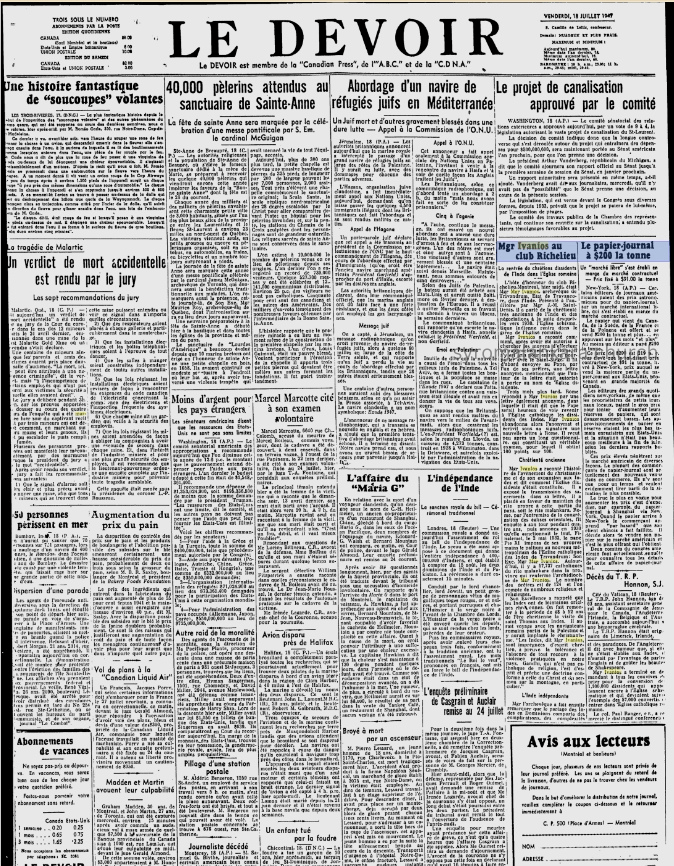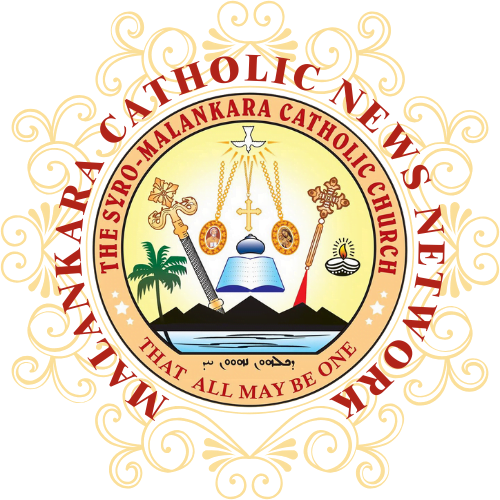The return of dissident Christians of India to the Roman Church
The guest of honor of the Richelieu Club.Montreal, yesterday noon, was Mgr Mar Ivanios, archbishop of Trivandrum, State of Travancore, in India. Presented to the audience by Mgr J.-M. Saint-Denis, he spoke of the very ancient Christianity of India and of the negotiations following which, around 1930, the schismatic Indian Church returned to the bosom of the Roman Church.
Mgr Ivanios recounted how, after having been authorized to seek the means of effecting a rapprochement with Rome, he set about entering into talks with the Holy See. He first sent to the Pope, by one of his priests, an anonymous letter, mentioning that the author of the letter was authorized to speak in the name of the dissident Church.
Three months later, Rome replied to Mgr Ivanios with a letter also anonymous, in which it was said that the Pope would be happy to see the dissidents of India return to the Catholic Church. Mgr Ivanios then abandoned anonymity and wrote under his signature a new letter to Rome. He soon received a long questionnaire, which constituted a real exam, for which he obtained 100 points out of 100.
Christendom of the East
Mgr Ivanios recounted the story of the coming of Christianity and its expansion in India and told how the dissident Church was constituted. He explained the transmission of the sacraments in his letter, he pleaded for the maintenance of the rite proper to this part of the country, namely the Malabar rite. Rome, through the Congregation of Eastern Churches, in turn investigated for four years, then announced in 1930 that it approved everything. Finally, on May 2, 1932, Pope Pius XI imposed with his own hands the pallium on the new metropolitan of the Catholic Church of the Indies of Trivandrum: His Excellency Mgr Mar Ivanios. Today, there are 57,737 Catholics of the Malabar rite in the province which includes the archdiocese of Mar Ivanios. The number of priests is 124 and there are many religious brothers and sisters…
“His Excellency recalled that India has distant Christian origins. The visit of Saint Thomas to India dates back to the period of 48 to 52 AD. He would have traveled with Roman navigators who left Palestine and would have implanted Christianity there. ‘The Indies,’ says Mgr Ivanios, ‘are steeped in Christian spirit, as evidenced by the tolerance and the absence of any recourse to violence practiced in our country. Gandhi, who is not a Catholic by religion, is one of spirit and preaches a doctrine in conformity with that of Christ and his sermon on the mount, in particular.'”
Mgr Ivanios and the work of reunion
His Excellency described the work of reunion accomplished since 1930. He spoke of the difficulties encountered, the prejudices that had to be overcome, and the gradual rapprochement of minds and hearts. He paid tribute to the zeal and devotion of his clergy and religious, who had been his precious collaborators in this delicate task.
The distinguished speaker concluded by expressing his gratitude to the Holy See for the paternal solicitude it had shown towards the Catholics of Malabar. He declared his entire devotion to the Pope and his unwavering attachment to the Roman Church. His words were warmly applauded by the audience.
Mgr Ivanios presented with a gift
Before the close of the meeting, Mgr J.-M. Saint-Denis, president of the Richelieu Club, presented Mgr Ivanios with a beautiful episcopal ring, a gift from the members of the Club. His Excellency thanked the donors with emotion, saying that he would keep this precious souvenir as a token of the warm friendship he had found in Montreal.
Copyright: Le Devoir, 18 Jul 1947



